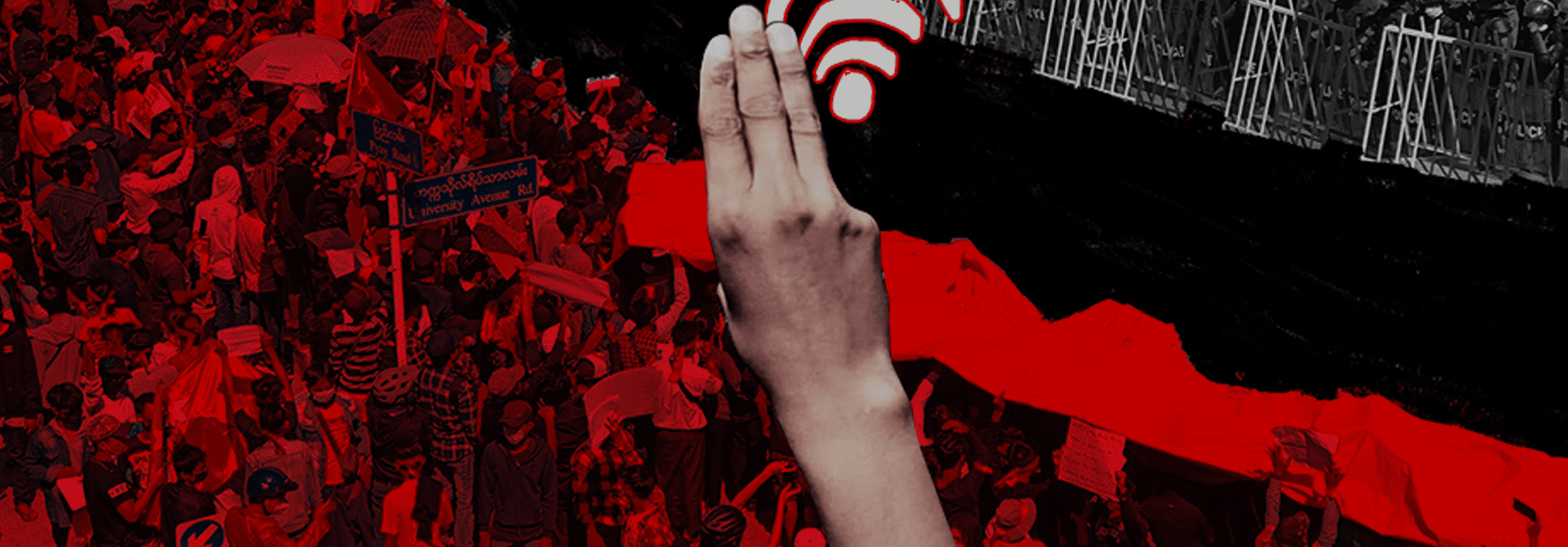
MYANMAR’S DIGITAL DICTATORSHIP
On February 1, 2021, Myanmar’s military junta seized power in a violent and deadly coup. Since then, the junta has escalated its attacks, both online and offline, perpetrating war crimes against the people of Myanmar and violating their human rights daily.
Yet the people of Myanmar remain determined to keep resisting the military and take back control of their country. Alongside our civil society partners, Access Now calls on the international community to stand with Myanmar’s resistance, offering not just solidarity, but concrete resources and support in the fight against digital oppression.
Surveillance and spyware

A call for global solidarity and decisive action to end Myanmar’s military rule and ensure victory for the people resisting dictatorship
Access Now and a coalition of human rights organizations call on the international and business community to resist the digital coup in Myanmar.

The world must bring down Myanmar’s digital iron curtain
Today marks three years since Myanmar’s junta seized power in a violent coup. Access Now is calling on the international community to offer resources to resist digital oppression.

Access Now’s UNHRC statement: Urge arms embargo to stave off expanding military abuse of surveillance tools in Myanmar
Access Now addressed the United Nations Human Rights Council at its 53rd session regarding the intensified abuse of surveillance and digital tools by the Myanmar military, ahead of the elections.

Track and target: FAQ on Myanmar CCTV cameras and facial recognition
The military junta in Myanmar is rolling out China-made CCTV cameras with facial recognition capabilities to intensify surveillance against the people.

Myanmar IMEI FAQ: how the junta could disconnect the resistance
Myanmar’s proposed IMEI rules raise surveillance and connectivity risks. Telco operators must prepare to push back.
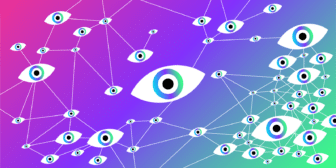
Telegram used to identify Myanmar Junta opponents
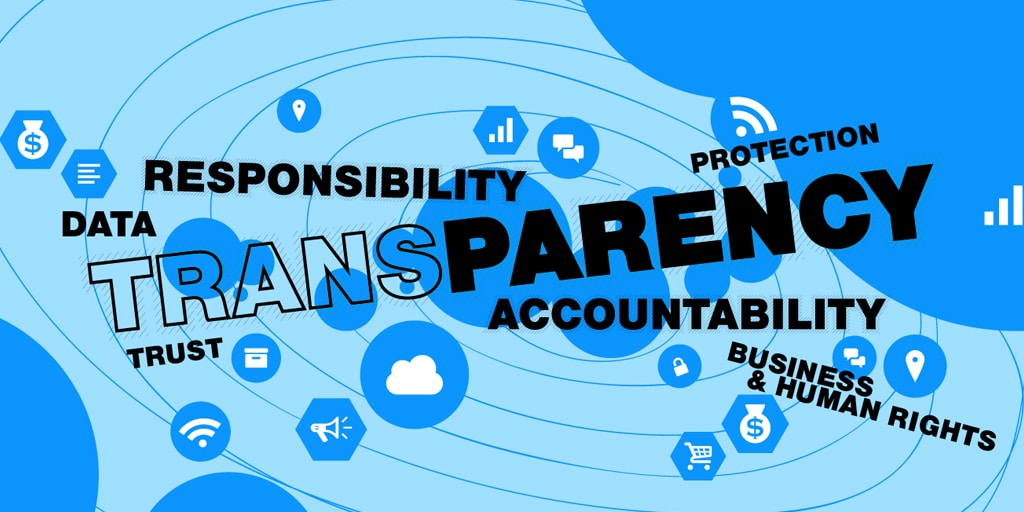
As Myanmar junta extends control over telcos, surveillance and privacy risks increase
Telenor must mitigate the human rights risks of its sale before passing on the private information of people in Myanmar to a military-linked operator.

Myanmar cannot wait: Only coordinated global pushback will stop escalating violence and repression
Internet shutdowns and COMMUNICATIONS BLACKOUTS

Who is shutting down the internet in 2023? A mid-year update
Since the beginning of 2023, governments around the world are discovering new reasons to disrupt internet access during key national moments.

The world must bring down Myanmar’s digital iron curtain
Today marks three years since Myanmar’s junta seized power in a violent coup. Access Now is calling on the international community to offer resources to resist digital oppression.
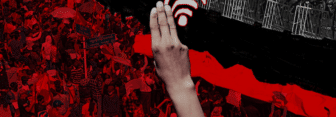
Open call to all international actors: do more to stop internet shutdowns shrouding torchings and killings in Myanmar
International actors must do more to stop internet shutdowns shrouding torchings and killings in Myanmar

UN Experts join civil society in condemning Myanmar military’s “digital dictatorship” and call for Member State action
Access Now supports UN human rights experts’ condemnation of the Myanmar military’s efforts to cement a “digital dictatorship.”

Internet shutdowns hide atrocities: people in Myanmar need global action
International actors must do more to stop internet shutdowns shrouding torchings and killings in Myanmar.

Internet shutdowns in Myanmar: facilitating brutal human rights violations in 2022
#KeepItOn shows that internet shutdowns in Myanmar facilitated brutal human rights violations in 2022.

Internet shutdowns shroud and facilitate brutality of Myanmar junta’s airstrike in Hpakant township
Access Now condemns the ongoing war crimes committed by the military in Myanmar, and its use of internet shutdowns to conceal the atrocities.
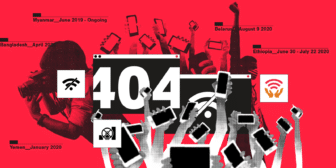
Access Now condemns Myanmar’s internet shutdown during military coup
Myanmar’s military uses internet shutdowns to quell protests and control the online space.
WEAPONISATION OF THE LAW

Myanmar’s “counter-terrorism” by-laws must be denounced for what they are – illegal
Myanmar’s counter-terrorism by-laws will allow the junta to access people’s personal data and tag them as terrorists.
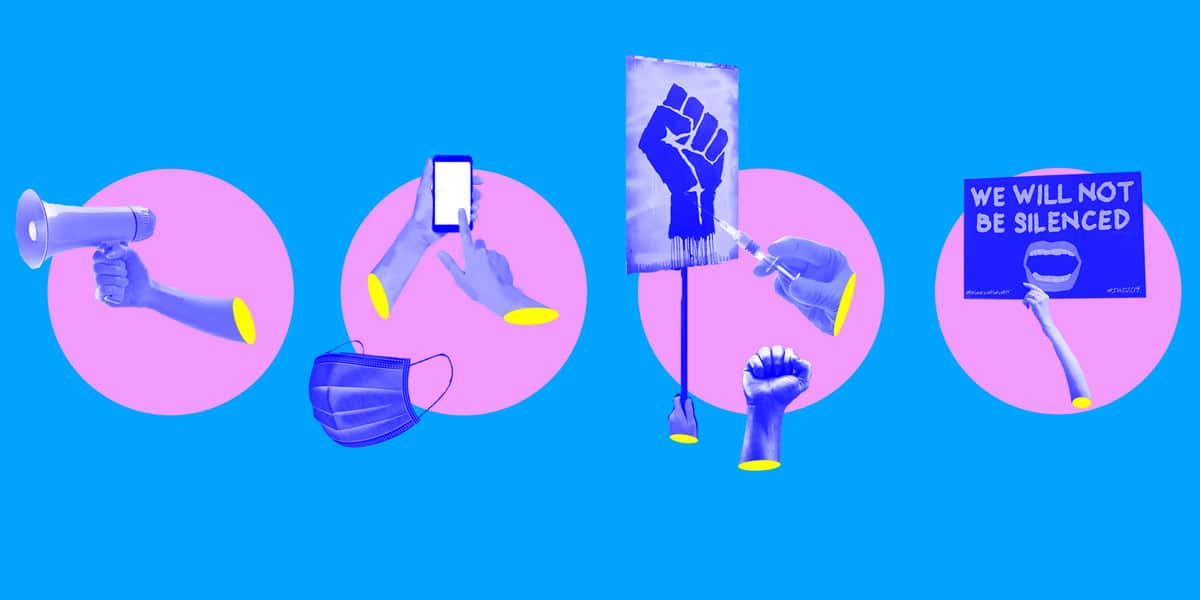
Analysis: the Myanmar junta’s Cybersecurity Law would be a disaster for human rights
The Myanmar junta’s efforts to achieve ultimate control over civic space is continuing — through a devastating draft Cybersecurity Law.

Myanmar Junta Cracks Down on Social Media Posts Deemed Anti-Regime

Myanmar’s ‘digital dictatorship’ aims to criminalize VPNs

The whole world’s watching: resist Myanmar’s digital coup
Civil society is calling on the international community to stand with the people of Myanmar and resist the coup — both physical and digital.

Access Now’s statement on Myanmar at the U.N. Human Rights Council
Myanmar’s military is engaged in a digital coup, and the international community must act. We spoke at the United Nations on Myanmar during the 49th session of the Human Rights Council to offer our recommendations.

Myanmar Junta Steps Up Efforts to Monitor, Silence Perceived Online Critics

Myanmar: dismiss all charges against activists for challenging year-long internet shutdown
Access Now denounces the persecution of Maung Saungkha, a prominent Myanmar poet and activist, by authorities in Myanmar and demands an end to his continued harassment. Maung Saungkha is being accused of organizing “unlawful” protests to demand an end to the internet shutdown in Rakhine and Chin states.
FAQS
HOW IS MYANMAR’S JUNTA WEAPONISING INTERNET SHUTDOWNS AND COMMUNICATIONS BLACKOUTS?
After Ooredo and Telenor, the last two telecommunications companies in Myanmar without connections to the military, sold their operations and exited the country, the junta took complete control of Myanmar’s telecommunications network. This allows the military to facilitate vicious attacks and block humanitarian aid via internet shutdowns and communications blackouts, especially in conflict zones where resistance is strong.
Reports reveal that, before bombing towns and villages, the military frequently uses jamming devices installed on military scout aircraft to block all communication networks. In 2022, all 330 townships in the country were subjected to shutdowns at least once, with over 50 townships cut off for almost two years.
Learn more about internet shutdowns in Myanmar in our report, Weapons of control, shields of impunity: Internet shutdowns in 2022.
WHAT TOOLS ARE DEPLOYED TO SURVEIL PEOPLE IN MYANMAR?
Under the guise of creating e-government projects, Myanmar’s military is raising funds and collecting resources to strengthen its massive surveillance infrastructure, pushing ahead with data collection projects such as its national census, e-ID system, and the establishment of a “National Database.”
The military’s intent is to track and target all those who oppose its reign of terror. So far, Myanmar’s e-ID system contains the personal data of 52 million people , including six types of geographic data, and data from over 13 million households. It’s also believed that the military has collected biometric data, including fingerprints, facial features, and eye pupil scans, from at least 2.1 million people.
The military also surveils people in other ways:
- Checkpoints, where unlawful arrests occur frequently, restrict people’s right to freedom of movement.
- Random security checks conducted on the street involve indiscriminate inspections of ID documents, phones, and other devices.
- Financial activities are monitored. Radio Free Asia reports that, in May 2023 alone, more than 700 mobile payment accounts were closed.
- An expanded network of CCTV and facial recognition technologies, including some tools purchased from Chinese companies implicated in human rights violations in Xinjiang, has been deployed across the country.
- People are required to register their devices’ IMEI (International Mobile Equipment Identity) numbers – a technique used by other authoritarian regimes to track and trace dissenting individuals, such as women trying to escape oppression in Saudi Arabia.
WHAT LAWS DO THE JUNTA USE TO QUASH RESISTANCE?
- The Telecommunications Law requires people to register their SIM cards, punishing those who fail to do so with up to six months in prison.
- The military has adopted extensive by-laws to the Anti-Terrorism Law, giving it the power to censor criticisms made against the military, intercept electronic communication data, and requisition people’s location data. In early 2024, documentary filmmaker Shin Daewe was given a life sentence under this law.
- The draft Cybersecurity Law threatens to criminalise the use of Virtual Private Networks (VPNs), which enable people to use the internet safely and anonymously.
The junta weaponises Myanmar’s penal code and other laws to unjustly jail members of the resistance, including activists and journalists. According to Reporters without Borders (RSF), 64 journalists are currently detained in the country, making Myanmar the world’s second-largest imprisoner of journalists after China.
HOW IS THE JUNTA MANIPULATING MYANMAR’S TELECOMMUNICATIONS SECTOR?
All four of Myanmar’s telecommunications companies are now either owned by the military, or controlled by companies with close military ties, making it easy for the junta to order the activation of intercept technologies to monitor people’s locations or their communications. The four companies are:
- Nine Communications, a Singapore-based subsidiary of Link Family Office and military-linked Nyan Win, which bought out Ooredoo.
- M1 Group, which purchased Telenor Myanmar through its Singapore-registered entity, Investcom Pte Ltd, the majority of which is owned by Shwe Byain Phyu Group, an entity subject to U.S. Department of the Treasury’s Office of Foreign Assets Control (OFAC) sanctions.
- Myanmar Posts and Telecommunications (MPT), a state-backed telecommunications company.
- Mytel, a joint venture between Myanmar’s military and Viettel Group, a multinational telecommunications, technology, and manufacturing conglomerate owned by Vietnam’s defense ministry.
Aside from the self-censoring effect caused by personal communications being constantly and blatantly monitored, the military is also curtailing freedom of expression by making it difficult to access or use telecommunications and internet services:
- Price hikes and onerous SIM card registration requirements make it difficult for people to access the internet, especially considering the dire economic challenges worsened by the coup.
- Phone seizures and hacking are abused by the military to monitor and target dissenting individuals, as well as their families and communities.
WHAT SHOULD THE INTERNATIONAL COMMUNITY DO?
- Establish and commit resources for a coordinated action plan to provide the people of Myanmar with alternative access to telecommunication services. Local communities in Myanmar struggle to use satellite communications or other means to resist the military’s control and authoritarian grip over communication networks. With a coordinated action plan, people in Myanmar can push back against worsening digital authoritarianism.
- In areas of crisis and conflict, recognize and fund alternative ways of accessing the internet and other communication channels, which are critical for protecting lives and fundamental human rights.
- Cut off or prevent financial, technical, and other forms of support for the military’s massive surveillance infrastructure. In 2023, the military struggled to secure funding for its e-government projects from other countries or from international organisations. This was a welcome step and must continue. The international community must deepen its efforts to stop the sale of dual-use surveillance technologies to Myanmar.
- Push technology and telecom companies to uphold human rights and hold them accountable when they fail to provide effective remedy for violations. Governments must not allow companies to profit from the suffering of Myanmar’s people.
- Stand in solidarity with the people of Myanmar. The international community must provide support to the people of Myanmar so they can resist the military’s abuses, while addressing the emerging challenges of building a new nation state.
HOW SHOULD COMPANIES SUPPORT THE PEOPLE OF MYANMAR?
- Urgently explain how they conduct due diligence to ensure that their operations and products in Myanmar do not negatively or adversely impact human rights. Telcos must do this without delay, as their partnerships with the military significantly enable the military junta’s human rights abuses. Companies producing or selling other types of technologies, including dual-use surveillance technologies, must stop all transactions involving the military and its allies.
- If, after a thorough human rights due diligence process, companies ultimately decide to exit the market, they should establish comprehensive remedies to address the human rights impacts of their departure. Companies must be held accountable for irresponsible exits from areas of crisis and conflict.
- Conduct heightened due diligence to ensure that their products and services are not used by the military or by military-controlled institutions in ways that violate human rights, and, if they are found to do so,immediately remove these products or services from the market. Invest significantly in human rights-based content moderation practices, data protection policies, and privacy safeguards, to resist attempts to increase surveillance, censorship, and rights violations.
- Pursue genuine public engagement in their decision-making processes and implement effective remedies when human rights violations are committed.
Learn more in our report, Content and platform governance in times of crisis: applying international humanitarian, criminal, and human rights law.
HOW CAN PEOPLE RESIST MYANMAR’S DIGITAL DICTATORSHIP?
People across Myanmar and around the world can pressure the military junta and telecommunications companies, and help keep Myanmar in the spotlight, by:
- Using the #WhatsHappeningInMyanmar, #StopDigitalDictatorship, and #KeepItOn hashtags to share what’s happening on social media.
- Raising human rights issues with their governments and representatives — particularly in countries where companies with investments in Myanmar are headquartered.
- Supporting civil society and grassroots advocacy efforts to resist the junta.
Latest updates

‘Cortina de ferro digital’ e liberdade de imprensa dizimada: violações se agravam nos três anos do golpe em Mianmar

The world must bring down Myanmar’s digital iron curtain
Today marks three years since Myanmar’s junta seized power in a violent coup. Access Now is calling on the international community to offer resources to resist digital oppression.

A call for global solidarity and decisive action to end Myanmar’s military rule and ensure victory for the people resisting dictatorship
Access Now and a coalition of human rights organizations call on the international and business community to resist the digital coup in Myanmar.

ကမ္ဘာ့မျက်မှောက်ရေးရာ။

Content and platform governance in times of crisis: applying international humanitarian, criminal, and human rights law
This new report discusses the application of international humanitarian, criminal, and human rights law in content governance in crises.
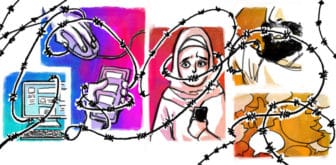
Joint Statement: Internet Governance Forum must reverse decision to make Saudi Arabia its next host
An IGF 2024 hosted by Saudi Arabia is incompatible with the event’s multistakeholder model, as human rights risks make robust civil society engagement impossible.

Access Now’s UNHRC statement: Urge arms embargo to stave off expanding military abuse of surveillance tools in Myanmar
Access Now addressed the United Nations Human Rights Council at its 53rd session regarding the intensified abuse of surveillance and digital tools by the Myanmar military, ahead of the elections.

Access Now’s UNHRC statement: Urge arms embargo to stave off expanding military abuse of surveillance and digital tools against people of Myanmar
Access Now’s UNHRC statement: Urge arms embargo to stave off expanding military abuse of surveillance and digital tools against people of Myanmar

Myanmar Junta Steps Up Efforts to Monitor, Silence Perceived Online Critics

Joint Statement: Passport and visa systems must not exclude members of the human rights community from cross-border convenings
These discriminatory systems prevent human rights defenders from coming together to advance their work, bring severe hardship and harm to those impacted, and unjustly place the heaviest burden on people from the Global Majority. Join us in taking a stand.

Who is shutting down the internet in 2023? A mid-year update
Since the beginning of 2023, governments around the world are discovering new reasons to disrupt internet access during key national moments.

Tech and conflict: a guide for responsible business conduct
This guide is meant to help tech companies think through the impacts of their decisions in the context of conflict.

Myanmar Junta Cracks Down on Social Media Posts Deemed Anti-Regime

KBZ users struggle under junta surveillance

Myanmar’s “counter-terrorism” by-laws must be denounced for what they are – illegal
Myanmar’s counter-terrorism by-laws will allow the junta to access people’s personal data and tag them as terrorists.
